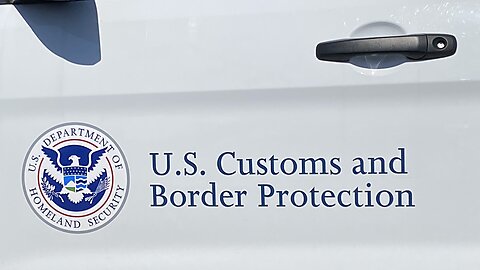
The US Border Patrol has apprehended 342 illegal border crossers who were on the Terrorist Screening Dataset, also known as the terror watchlist, since 2017. Those numbers have shot up in recent years to 169 in FY2023 and 49 to date this fiscal year. This week, The Daily Caller reported that Border Patrol apprehended an al‐Shabaab terrorist and released him into the United States in March 2023 after a mismatch on the watchlist. Later, the government discovered that he was on the watchlist, and Immigration and Customs Enforcement (ICE) arrested him within 48 hours. The Daily Caller’s headline was “ICE Confirms It Finally Nabbed Terrorist Allowed To Roam Free For Almost A Year.”
This story may develop further, or it may not. If it does, the following information will help you understand what’s happening. If the story doesn’t develop further, some of the points below will explain why.
Most people on the terror watchlist are not terrorists. The terror watchlist contains known terrorists, suspected terrorists who “engaged in conduct constituting, in preparation for, in aid of, or related to terrorism and/or terrorist activities based on an articulable and reasonable suspicion,” and individuals included without an articulable and reasonable suspicion who are included on the list to “support immigration and border screening.” You should be concerned about people on the terrorist watchlist, but you should not immediately assume that they are terrorists planning a domestic attack.
Individuals on the watchlist who crossed the border illegally have never committed an attack domestically, let alone killed or injured anyone in such an attack. There is a chance that this could always happen, of course, but it’s important to remember what we know.
As far as I can tell, an individual on the watchlist who crossed the border illegally has never been prosecuted for planning a domestic attack or for carrying one out. I’ve looked at thousands of court documents, asked reporters who follow this issue closely, and asked government officials, and we have come up with no examples. There is a chance that this could happen, but if the watch‐listed individual recently arrested by ICE is prosecuted for planning a domestic attack, then he’ll be the first.
The watch‐listed individual that ICE arrested probably won’t be prosecuted, and there’s a good chance we won’t read any more information about him because he’ll be removed from the United States. Prosecutors would love to prosecute this watch‐listed individual for a terrorism or terrorism‐related offense—it would make his or her legal career. If there is some evidence of actual terrorist activity, then this watch‐listed person will be prosecuted. We’ll find out much more in that case.
Customs and Border Protection has released individuals before who were on the watchlist that ICE then later apprehended.
Inclusion on the terror watchlist is a good enough reason to be barred from entering the United States. The watchlist isn’t very meaningful and includes primarily people who are not terrorists, but inclusion on it is still good enough to be removed. This recently arrested individual should never have been allowed into the country, and he should be removed, assuming he is not a terrorist planning an attack on US soil. If he is a terrorist or was planning an attack or another crime, then he should be prosecuted, convicted, incarcerated, and removed from the United States.
As I’ve testified and written about before, the threat of terrorists entering illegally along the southwest border and planning or committing a domestic attack is minor, but it is not zero. To be clear: It is possible that a terrorist could enter the United States illegally across the US‐Mexico border to commit an attack. Illegal immigrant terrorists have been convicted of planning domestic attacks before.
Nine foreign‐born terrorists entered the United States illegally from 1975 to 2023. Three entered illegally by crossing the US‐Mexico border in 1984 when they were young children. The three Duka brothers were arrested almost 23 years later, in 2007, while plotting to attack Fort Dix, New Jersey. Of the other illegal immigrant terrorists, five illegally crossed the US‐Canada border, and one was a stowaway on a ship. Still, the threat is small and manageable. Government agencies along the border and elsewhere should watch for the possibility even if it is unlikely. Also, they should make sure their security efforts pass a cost‐benefit test.



